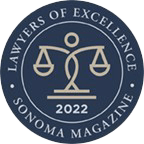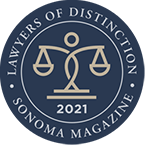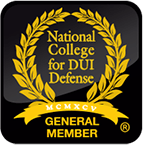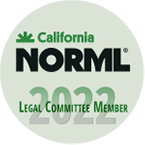
- Ignition Interlock Device
- Breath Tests
- DMV Hearings
- DMV Suspensions
- Field Sobriety Tests
- Multiple DUI
- Felony DUI
- DUI Causing Injury
- DUI With Child in the Car
- Out of State DUI

Santa Rosa DUI Attorney
Experienced in Every Type of DUI Charge in CA
A conviction for Driving Under the Influence (DUI) can leave a lasting impression on your criminal record, ability to obtain employment and reputation within the community. The prosecutor will undoubtedly attempt to persuade you to plead guilty and accept the charges, regardless of whether you are actually guilty of the crime. But don't plead guilty without putting up a fight first with our hard-hitting Santa Rosa DUI attorney at the Law Offices of Evan E. Zelig.
If you are arrested for DUI anywhere in Sonoma County, Napa County, Marin County, and throughout the North Bay Area, speak with our DUI lawyer prior to entering into any agreement with the prosecution, as there could be significant and exonerating factors to your case. Our Santa Rosa DUI attorney and legal team work directly with you to fight these charges, which can include scrutinizing the accuracy of blood alcohol content testing devices, questioning whether the arresting officer violated your rights, and more. Our lead Santa Rosa DUI lawyer understands the ins and outs of DUI prosecution and how to capably defend DUI charges. Whether you've been charged with your first DUI offense, have multiple DUI charges, or are even facing a felony DUI charge, we'll be right there with you from the arrest to your DMV hearings and all the way to trial.
At the c Law Offices of Evan E. Zelig, we have more than a decade of experience practicing criminal law and we dedicate a significant portion of our caseload to DUI defense. We work hard to make sure that your charges do not negatively impact your driving privileges and future.
Discuss your DUI charges during a free case review. Call our Santa Rosa DUI attorney at (707) 418-5352today.
Navigate to DUI Topics:
- Defending DUI Charges
- Defenses to the Blood & Breath Tests
- Defenses to Field Sobriety Tests
- California DUI Penalties
- First-Time DUI Penalties
- Refusing a Breath, Blood, or Urine Tests
- DUI FAQ
- What Is an Aggravated DUI?
- Am I Eligible For a DUI Expungement?
- When Can an Officer Pull You Over for a DUI in California?
- Pulled Over for a Broken Taillight or Cellphone-Use and Charged with a DUI?
- Why Should You Fight a DUI Charge?
- What does California consider legal intoxication?
- Can you get a DUI even if you are not legally intoxicated?
- Do I have to take a field sobriety test?
- What can escalate DUI charges?
- How long is California’s DUI lookback period?
- Can I Get My DUI Charge Reduced?
Defending DUI Charges in Sonoma County - You Do Not Have to Plead Guilty
One of the most common misconceptions about driving under the influence cases is that a driver is as good as guilty if they register a BAC above the legal limit. While a positive breath, blood, or urine test is indeed powerful evidence, there are still many ways that your defense can protect you against the prosecution’s claims. Our team of Santa Rosa DUI defense lawyers can review the circumstances surrounding your arrest and determine the most appropriate legal strategy to pursue.
Common defenses against drunk driving charges include:
- Illegal stop
- Improper breathalyzer use
- Improper administration of field sobriety tests
- Mishandling of blood tests
Defenses to the Breath & Blood Tests
One of the prosecution's key pieces of evidence will likely be the result of a breathalyzer or blood test, revealing a blood alcohol content (BAC) above the legal limit in California. For adults over age 21, a BAC result of .08 percent or higher is considered unlawful, while a BAC of .01 percent marks the threshold for drivers under age 21. However, there are scientifically proven reasons for a high BAC result that may have little to do with actual intoxication.
Possible defenses our Santa Rosa DUI defense attorney could raise include:
- Instrument malfunction
- Improper storage of blood samples, resulting in fermentation or contamination
- Over-mixture of anti-coagulants or preservatives at the time a blood sample is stored
- Acid reflux conditions and disorders leading to presence of alcohol in the mouth
- Improper handling of samples in violation of chain-of-custody protocol
Defenses to Field Sobriety Tests
Failing a field sobriety test (FST) is evidence of intoxication, but is just one factor to consider when determining the guilt or innocence of one charged with a California DUI. At the time of your FST, the officers will also note your general physical appearance and demeanor, which is commonly also used as evidence of intoxication. Officers may note your sluggish behavior, watery eyes or inability to hold your balance.
However, there are other explanations for these observations:
- Fatigue
- Injury
- Illness
- Uneven pavement
- Allergies
The results of the FST may also be skewed if administered during bad weather or while wearing inappropriate footwear (e.g., high heels).
As a well-versed defense lawyer, Evan E. Zelig, has unique insight into the way DUI cases are handled by the state and the many flaws inherent in the various testing methods.
"I can't speak any higher about my experience with Evan. I came to him with a very problematic DUI where I had been in an accident and also charged with a Felony Hit and Run. I found Evan to be a very hardworking and knowledgeable attorney. He showed continuously through the process that he cared about me as a person. While I was rightfully convicted he helped minimized the sentence. Upon completion of my probation he was able to get my felony reduced to a misdemeanor, dismissed, and expunged. I no longer have this nightmare hanging over my head. I have Evan to thank for his expert advice, guidance, and representation through the entire process. While I hope I never have to hire him again if I ever need a criminal attorney he will the only call I make. Evan, I can't thank you enough." - Matt
California DUI Penalties
Whether this is your first arrest for DUI or you have a prior record, the penalties involved can be quite drastic. Penalties for repeat DUI offenders and cases involving fatalities will be much worse.
DUI consequences vary according to the circumstances of the arrest, but they most often include:
- Driver's license suspension
- Points on your driver's license
- Probation
- Jail time
- Significant fines
- Community service
- Installing an ignition interlock device
First-Time DUI Penalties in CA
Penalties for a first DUI convictions often include:
- Immediate license suspension for 4 months or more
- 4 days to 6 months in jail
- $390 to $1,000 in fines
- Additional fees and taxes
- $125 license reissue fee
- Mandatory ignition interlock installation
Some form of DUI safety awareness or driver’s training program will also be necessary. Many of these courses will require several weeks of attendance to complete and offer no form of compensation for the time taken out of your schedule.
You will also have to file an SR-22 form for additional costs when your license is reinstated to prove that you possess current auto insurance.
Plea Bargains & First-Offense DUIs
There are situations when your intoxication may be so prevalent, you cannot reasonably contend that you had not been drinking. While this is certainly not an ideal situation, you are not entirely out of luck and at the mercy of the criminal justice system and the Department of Motor Vehicle’s (DMV) administrative penalties.
With the help of an experienced Santa Rosa DUI attorney, you may be able to negotiate a plea bargain for reduced punishments and sentencing, arguing that your otherwise clean record and your forgiveness now are indicative that you will not commit a similar offense again.
Plea bargains are complicated procedures, though. In effect, you will be admitted that you have committed the crime of driving under the influence of alcohol. If the plea bargain is not accepted, you put yourself at a serious disadvantage for the following trial. Only proceed with a plea bargain if you have worked thoroughly with our Santa Rosa first DUI lawyer beforehand.
Refusing a Breath, Blood, or Urine Test in California
In the state of California, drivers who are lawfully arrested for DUI are required to submit to a breath, blood, or urine test to measure their blood alcohol concentration (BAC) under the state’s “implied consent” law. While many people believe that they can avoid being convicted of DUI by refusing to take these tests, test refusal is a crime in and of itself and can expose you to further penalties.
Refusing a chemical test in California can bring the following consequences:
- First offense: 1 year driver’s license suspension
- Second offense: 2 year driver’s license suspension
- Third offense: 3 year driver’s license suspension
In addition to a license suspension, refusing a chemical test will carry a $125 fine and will usually be used by the prosecution as evidence of guilt. Likewise, it is important to remember that depriving the prosecution of evidence of your BAC is in no way a guarantee that you will not be convicted of DUI.
The state does not need to be able to prove that you were over the legal limit, only that you had enough alcohol in your system to be unfit to drive. Generally speaking, it is recommended to submit to a test and contact an attorney from our firm as soon as possible.
DUI FAQ
What Is an Aggravated DUI?
The factors that determine sentencing after a DUI can either be “mitigating,” such as being a first-time offender with a clean record, or “aggravating,” which carries harsher penalties. In California, a DUI itself isn’t “aggravated,” but a DUI charge has aggravating factors, making it more serious in the law's eyes.
Some examples of aggravating factors for a DUI include:
- Prior DUI convictions: The more DUI convictions you get over time, the harsher the penalties will be, as it indicates to the judge you are a high-risk driver.
- High BAC: If you had a high amount of alcohol in your system at the time of the offense, this will be used against you. Usually a high BAC is considered anything at or above 0.15%.
- Reckless driving: Standard reckless driving alone is enough to put a convicted motorist in jail for up to 90 days, as well as fines between $145 and $1,000.
- Excessive speeding: Driving more than 20 MPH over the speed limit is considered an excessive speed and can be an indication that your judgment was impaired while operating a vehicle.
- Driving on a suspended license: If your license was canceled, revoked, or otherwise suspended, you are not allowed to drive by California law.
- Causing injuriesor property damage: A felony DUI involves injury or death to multiple victims, which result in a one-year prison sentence enhancement per victim, with a maximum penalty of three years.
- Having a child in the vehicle: If a child under the age of 14 was present at the time of the DUI offense, it results in enhanced penalties, including increased jail sentences. Those convicted could face 48 hours in jail for the first minor-passenger offense, 10 days for the second conviction, and 30 days for the third offense.
Am I Eligible For a DUI Expungement?
The state of California has several strict requirements that you must meet to be considered eligible to have your DUI charges removed from your record. Each of these requirements must be met, and it can take some time to be eligible.
- Probation: You must have completed your probation period to be eligible for expungement. For many first-time offenders, this period can be between 3 and 5 years. If your DUI was considered a misdemeanor charge, you may not have been sentenced to probation, but you still must wait one year before you can apply for expungement in California. It may be possible to petition the court to have your probation length shortened or terminated, but many judges are reluctant to shorten probation periods.
- Fines & Restitutions: If you have been ordered to pay fines or restitution for your crime, you must complete these payments. The court will verify if these expenses have been paid. If so, you may be able to have your DUI charge expunged from your record.
- Other Charges or Sentences: If you wish to have your DUI charge removed from your record, you must also have a clean criminal history since the charge. This means that you cannot be facing trial for another crime or be serving a sentence for another charge. It is likely that your probation period will not end unless you have not been accused of any other crimes, but it is important to remember that a later charge may harm your ability to have your DUI charge expunged.
When Can an Officer Pull You Over for a DUI in California?
One of the fastest ways for the prosecution to lose a case is for them to be stripped of their evidence by it being rendered inadmissible. One of the surefire ways for a Santa Rosa DUI attorney to render evidence as inadmissible in a driving under the influence (DUI) case is to prove that the stop was unlawful. But this is when matters begin to get complicated. When is a stop unlawful? What reasons must a police officer have when pulling you over on suspicion of a DUI?
Probable Cause in Santa Rosa DUI Cases
Everyone has the right in this country to go where they please and when they please, assuming they are not violating any trespassing laws in the process. For this reason, the police are not allowed to stop anyone “at random."
Instead, they need to have “probable cause”, or a reasonable belief that stopping you will either deter you from committing a crime or help them prevent one.
In a DUI case, the reasonable suspicion typically comes from observing signs of impairment while you're on the road. If it is a weekend night when the police know most DUI arrests occur in their county, they will have even more probable cause to pull someone over and try to figure out if they are intoxicated behind the wheel.
Observable Traffic Violations: This is the most common reason. The officer must witness you committing a traffic violation, such as:
- Speeding
- Running a red light or stop sign
- Weaving in and out of traffic lanes
- Driving with faulty lights
- Making illegal turns
Erratic Driving: If the officer observes erratic driving behavior that suggests impairment, they can pull you over. This might include:
- Swerving
- Braking erratically
- Driving very slowly without justification
Other Signs of Intoxication: While not enough on their own, if the officer notices signs that line up with DUI, they can use it as reasonable suspicion. These signs include:
- Smell of alcohol on your breath
- Bloodshot eyes
- Slurred speech
- Fumbling for documents
What about sobriety checkpoints and traffic stops where everyone needs to pull over and talk to the police? So long as there was some public notification announcing the checkpoint’s location ahead of time – usually posted on the local police department’s website and in a local newspaper – it is permitted. Other than those situations, if you are not driving erratically, the police cannot pull you over. Right?
Pulled Over for a Broken Taillight or Cellphone-Use and Charged with a DUI?
In Heien v. North Carolina, a case that went all the way to the Supreme Court due to its controversy, a driver was pulled over because his vehicle had one dysfunctional taillight, and he was subsequently arrested for having cocaine in the car. Vehicle equipment failures – such as missing headlights or taillights – are valid reasons for a police officer to pull someone over. The issue was that in North Carolina, it is legal to drive with just one taillight. So was the stop unconstitutional? Not according to the Supreme Court, which held that the officer had valid reason to believe the law stated both taillights must be functional, and therefore had valid reason to conduct the stop and search of the vehicle. When this case result is extrapolated to other scenarios, it can become quite problematic for motorists everywhere.
Imagine that a police officer pulls you over because he thought he saw you using your cellphone while driving. Once stopped, he smells alcohol on your breath and you are arrested for a DUI, despite breaking no laws and exhibiting no reckless driving behaviors. Even if you weren’t holding a cellphone at any point during your drive, the officer could argue that he “could have sworn” he saw it in your hand, and his probable cause to stop you would be considered valid.
Why Should You Fight a DUI Charge?
Many people who have been arrested and charged with driving under the influence feel compelled to simply plead guilty and get it over with. Since they have been caught and the police have the evidence to support it, they surely can’t win their case, right? Wrong. Those who have been accused of DUI should absolutely fight back with the assistance of a Santa Rosa lawyer. The negative consequences of a guilty plea or a conviction can be potentially life-changing, so you should do everything in your power to defend yourself in your hearing.
- Your Career: Background checks have become an integral part of getting a job, and a DUI charge will appear on this history. It’s not uncommon for someone to be disqualified for a position as a result of a criminal conviction on their record, especially if the job will involve driving somehow. Even if the job has nothing to do with driving, the negative stigma that comes with a DUI conviction can unfairly deny you the future you deserve.
- College or University: Not only do many schools not accept applicants with a DUI conviction on their record, but these individuals may also lose the scholarship and grant opportunities. For current students, many colleges have a policy for reporting crimes. An arrest or conviction can result in suspension or expulsion. When it comes to indirect impact, driver’s license suspension and spending time behind bars can lead to constant tardiness and absence.
- Auto Insurance Rates – After getting convicted, your auto insurance premiums will significantly increase because drunk drivers are considered “high-risk” individuals. While your insurance rates may double or triple over the course of three to five years, some insurers will cancel your coverage entirely. A DUI conviction carries with it a high financial toll; possibly increasing one’s auto insurance premiums upwards of 71%. And because your auto insurance premiums are affected by your credit score, the inability to handle this increase also impacts your financial future for years to come.
- Your Freedoms: A DUI conviction means a judge could require you to install an ignition interlock device on any vehicle you may drive for a year or longer. This may not seem like much, but you lose the ability to do things like drive a friend to the hospital in their car, rent a vehicle, and more. Furthermore, a DUI could result in some pretty harsh temporary license restrictions. Those who have had their license suspended and then been granted a restricted license may only drive to and from work and their alcohol education classes, and nowhere else.
- The Evidence May Not Be Valid: DUI is such a commonly-occurring crime that you’d think collecting evidence and presenting it in court would be perfected to a clockwork-like process by now. However, what many people don’t realize is the evidence against you may not be valid. Law enforcement frequently makes a number of errors, such as failing to calibrate the blood or breathalyzer test, arresting you without probable cause, and more. This is crucial because any evidence that is improperly obtained or invalid can be thrown out, thus meaning your prosecution will have no case against you, and your charges will likely be dropped with no ramifications.
What does California consider legal intoxication?
Someone is legally intoxicated – or inebriated to the point where it becomes illegal to operate a motor vehicle – if they hold a regular driver’s license and have a blood alcohol concentration (BAC) level of 0.08 or greater. Commercial driver’s license holders are considered legally intoxicated with a BAC level of 0.04 or greater. Lastly, anyone under the age of 21 is legally intoxicated with a BAC level of just 0.01 or greater.
Can you get a DUI even if you are not legally intoxicated?
Yes, you can be arrested for a DUI if you have any detectable BAC above 0.00 and the arresting officer claims to have seen you driving dangerously. You can also be charged with a DUI if you are suspected of driving while impaired due to drug use, even if you only take prescribed medications or over-the-counter pills.
Do I have to take a field sobriety test?
You do not necessarily need to take a field sobriety test (FST) requested by a police officer after pulling you over. Generally, if you have not yet been arrested, you do not need to comply. Before you deny a FST, though, ask the officer if it is mandatory or optional. When optional, you might decide to not take the FST, as they are typically one-sided and used to secure an arrest. If you are told it is mandatory, you should probably take it, as denying a mandatory test can result in immediate license suspension. Although, mandatory tests are supposed to be more scientific, like a breath or chemical test conducted in a police station, not a stand-on-one-foot “test” conducted curbside.
What can escalate DUI charges?
Your DUI charge will escalate depending on a number of factors. Most often, people face longer jail time, higher fines, and extensive license suspension if they have preexisting DUI convictions on their record. You can also be more heavily penalized for a DUI if someone was hurt due to your driving, or if you had a child in the vehicle with you at the time of arrest.
How long is California’s DUI lookback period?
California uses a ten-year lookback period for DUI cases. In simple terms, your DUI charge will escalate to a second or subsequent DUI if you have a DUI conviction within the last 10 years on your record. This is one of the longest lookback periods in the country, and it is notoriously difficult to have DUI marks removed, sealed, or expunged.
Can I Get My DUI Charge Reduced?
Even if obtaining a not guilty verdict seems difficult, the prosecution may consider resolving the case by offering you with a plea bargain that reduces your DUI charge. This is often the case when it is the defendant’s first DUI offense, their blood alcohol content is at or just below the legal limit, or there is an issue with proving a reasonable doubt.
One of the most common types of reduced DUI charges is “wet reckless,” according to California Vehicle Code § 23103/23103.5 VC. Wet reckless is a type of reckless driving charge that is only given to those who are accused of drunk driving. You cannot be arrested for wet reckless, which means the only way to obtain this charge is to get a DUI reduced.
Here are the advantages of a wet reckless charge:
- Less jail time – A first-time DUI conviction can result in a jail term of up to six months. By contrast, a wet reckless conviction is punishable by a maximum 90-day jail sentence.
- No license suspension – A first-time DUI conviction carries a mandatory six-month license suspension period. On the other hand, a wet reckless conviction does not result in losing your driving privileges.
- Lower fines – A first-time DUI conviction is punishable by a maximum $3,000 fine. Fines of a wet reckless conviction can add up to $1,000.
If our firm is unable to get your entire case dismissed, we can attempt to significantly reduce your charges by obtaining a wet reckless charge.
Standing Up for Your Rights is More Important Than Ever
If you are pulled over and arrested for a DUI, you must be willing to stand up for your rights and challenge the charges. If it can be found that the police did not have valid reason to stop you, or that they intentionally looked for an otherwise unnoticeable problem to do so, it may be possible to have the evidence suppressed and your case dismissed.
We understand that being arrested for DUI can be overwhelming and stressful. You may think that the field sobriety tests and blood/breath tests you took will lead to an automatic conviction, but there are a number of effective ways we can help you challenge the evidence presented against you.
Please call (707) 418-5352 today to schedule a free case evaluation with our DUI attorney in Santa Rosa, CA!

Our Clients Tell It Best
-
"I hired Mr. Zelig on the recommendation of another fantastic lawyer."Jason A.
-
"caring, aggressive, knowledgeable attorney and a terrific role model."Former Client
-
"He is definitely my go-to man."Former Client
-
"I was really pleased with the outcome. He is truly the best."Charles H.
-
"Evan demonstrates a level of care for his client's needs that goes beyond expectations."Erick B.
-
"He has really gone above and beyond what he had to do as well."Alex A.


After Attorney Evan E. Zelig gained experience in various positions throughout the legal field, he returned to Northern California to open up his own practice, the Law Offices of Evan E. Zelig. Located in the heart of Sonoma County near the Hall of Justice Courthouse and Jail Detention Facilities, Mr. Zelig accepts criminal cases from all across California.



Our Blog
We always provide current legal information, updates, and stories discussing issues affecting our community.








